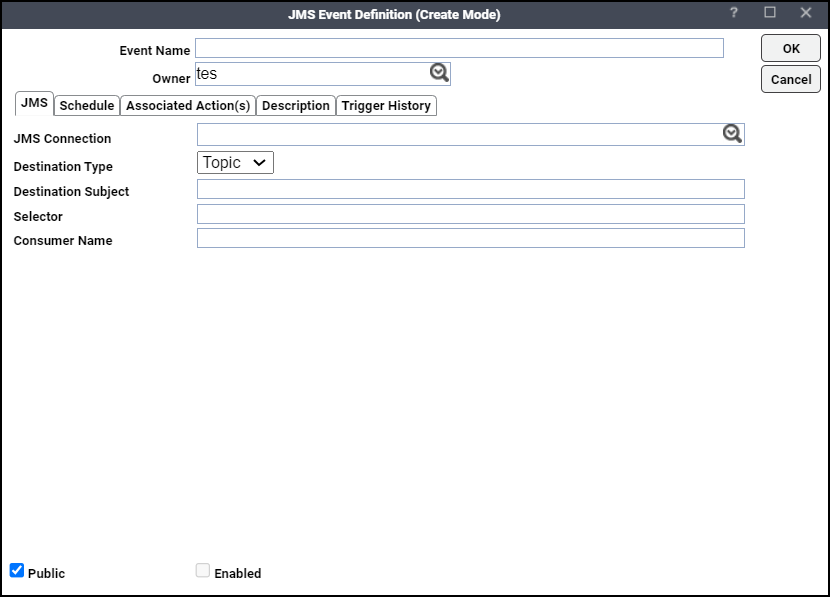Defining JMS Events
Using the JMS Adapter, you can define events acting as a “consumer” that can be used for monitoring selected topics or queues in the JMS systems. Events are triggered when a message is received for the monitored entity. Data entry fields are provided for user to specify the topic or queue to be monitored as well as a selector expression for qualifying messages, in standard JMS terms.
To define a JMS event:
-
Navigate to Definitions > Events > JMS on the Navigation pane to display the JMS Events pane.
-
Right-click JMS and choose Add JMS Event from the context menu. The JMS Event Definition dialog displays.
-
Click the JMS tab.

-
Enter a name for the event in the Event Name field and click an Owner.
-
Specify the information:
-
JMS Connection – Specify the JMS connection from the dropdown list. This is the connection that will be monitored for the specified event.
-
Destination Type – Specify whether the destination is a JMS queue or topic.
-
Destination Subject – Enter the queue subject or topic subject.
-
Selector – Enter the selector expression for qualifying messages.
-
Consumer Name – Enter the name of the consumer defining the event.
-
-
Click OK to save the event definition.
Note: The other tabs on the JMS Event Definition dialog are general event configuration options and are not specific to the JMS Adapter. Any action that is available in TA, such as sending email, generating alerts, sending SNMP traps, setting variables, and adding jobs is available as a response to a JMS event.
Event Variables
This table lists the event variables:
| Name | Tag | Definition |
|---|---|---|
|
Event Subject |
<Message.subject> |
JMS Destination Subject |
|
Event Message |
<Message.body> |
JMS Message Body |
|
Event Headers |
<Message.headers> |
JMS Message Headers |
|
Event Properties |
<Message.properties> |
JMS Message Properties |
|
Event Output |
<EventOutput> |
TA customized output generated which defines the event |